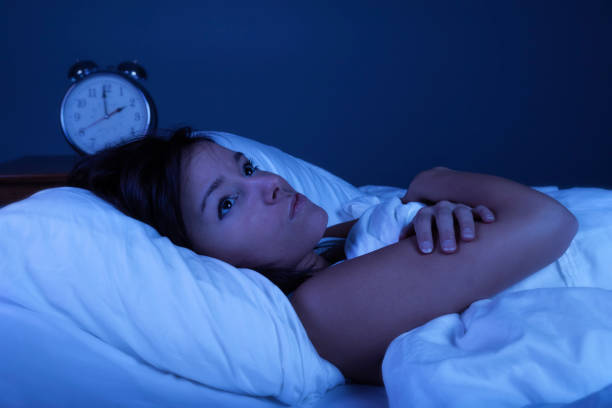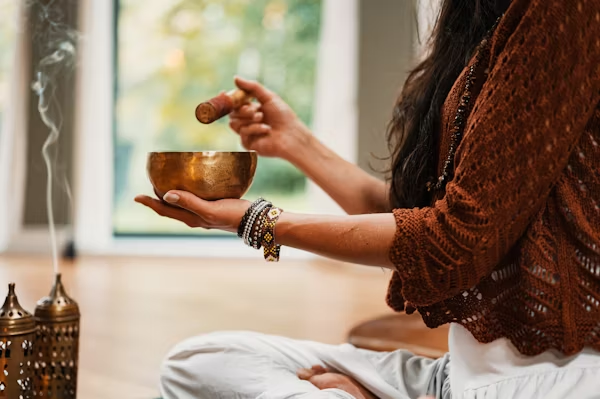🛌 Introduction
Let’s face it — we all crave a good night’s sleep, but few of us actually get it. With the buzz of technology, stress from work, and endless to-do lists, it’s no wonder sleep feels like a luxury.
But what if improving your sleep didn’t require pills or expensive gadgets? What if it could start tonight — naturally?
This article breaks down 5 simple and natural methods you can use right away to sleep deeper, feel refreshed, and wake up ready to conquer the day.
🧠 Understanding Sleep Cycles
What Happens When You Sleep
Sleep isn’t just a switch you turn off and on. It’s a complex biological process where your body and brain go through different stages — each playing a critical role in your health.
From light sleep, where your body relaxes, to deep sleep, where cells regenerate and memory solidifies, every phase matters.
REM vs. Non-REM Sleep
Ever wonder why some naps leave you groggy while others feel energizing? That’s because REM (Rapid Eye Movement) sleep and Non-REM sleep affect your brain differently.
REM sleep is where dreaming happens and emotions are processed. Non-REM, especially the deep stages, restores your body. Both are essential for waking up feeling whole.
💔 The Cost of Poor Sleep
Physical & Mental Health Effects
Not sleeping well? You’re not alone. Lack of sleep contributes to:
- Weight gain
- Heart disease
- Depression
- Weakened immunity
And that’s just scratching the surface.
Long-Term Consequences
Chronic sleep deprivation can lead to diabetes, high blood pressure, and even Alzheimer’s disease. The longer you ignore it, the worse it gets.
🌙 1. Create a Sleep-Friendly Environment
Cool, Dark, and Quiet
Think of your bedroom as a cave for rest. Keep it:
- Cool (around 60-67°F / 15-19°C)
- Dark (use blackout curtains)
- Quiet (consider white noise or earplugs)
Even the light from your Wi-Fi router can disrupt melatonin production!
Invest in a Good Mattress
You spend a third of your life in bed — why skimp on your mattress? A supportive, comfortable one can reduce pain and prevent tossing and turning.
Look for memory foam or hybrid mattresses that suit your body type.
⏱️ 2. Establish a Bedtime Routine
Why Routines Work
Our bodies love consistency. A solid routine helps signal your brain that it’s time to wind down.
Examples of Effective Routines
Try this tonight:
- 9:30 PM: Shut off screens
- 9:40 PM: Warm shower
- 9:50 PM: Herbal tea
- 10:00 PM: Light reading or meditation
Do this consistently, and your body will thank you.
🍵 3. Watch What You Eat & Drink
Avoiding Caffeine and Sugar
That 4 PM latte? It could still be in your system at midnight.
Caffeine has a half-life of 5–6 hours, which means it sticks around for a while. The same goes for sugar, which spikes energy and crashes you later.
Sleep-Inducing Foods and Teas
Try foods high in magnesium, tryptophan, and melatonin like:
- Almonds
- Bananas
- Oats
- Chamomile or lavender tea
Nature’s pharmacy is open 24/7.
☀️ 4. Embrace Natural Light During the Day
Circadian Rhythms Explained
Your body runs on a 24-hour internal clock, known as the circadian rhythm. Sunlight helps regulate it.
Morning Light Exposure Benefits
Getting outside in the morning (even for 10 minutes) can:
- Boost mood
- Improve melatonin timing
- Help you sleep earlier and deeper
So skip the sunglasses for your morning walk and let the sun in.
🧘 5. Practice Relaxation Techniques Before Bed
Breathing Exercises
Simple breathing can calm your nervous system.
Try the 4-7-8 technique:
- Inhale for 4 seconds
- Hold for 7 seconds
- Exhale for 8 seconds
- Repeat 4 times
Meditation and Mindfulness
Apps like Calm and Headspace offer guided meditations perfect for winding down.
Mindfulness reduces racing thoughts and prepares your mind for rest.
🆓 Bonus Tips
Limit Screen Time
Blue light from phones and laptops tells your brain it’s daytime. Turn off screens at least an hour before bed.
Or use f.lux or built-in Night Shift features to reduce blue light.
Sleep-Friendly Apps
Try apps like:
- Pzizz – for power naps and night sleep
- Noisli – customizable background sounds
- Sleep Cycle – smart alarm that wakes you gently
🚫 What to Avoid Before Bed
Late Workouts
Exercise is great — but intense sessions too late can spike adrenaline. Aim for at least 3 hours before bedtime.
Alcohol and Smoking
Sure, a glass of wine knocks you out — but it also disrupts REM sleep. And nicotine? It’s a stimulant. Enough said.
🌿 Natural Supplements You Can Try
Melatonin and Magnesium
Melatonin helps reset your sleep-wake cycle. Start small — 0.5 to 3mg.
Magnesium supports muscle relaxation and reduces anxiety. Try magnesium glycinate or citrate.
Herbal Remedies
Some well-known herbal helpers include:
- Valerian root
- Passionflower
- Ashwagandha
These herbs are available in teas or capsules and have centuries of use behind them.
💤 Common Myths About Sleep
“I’ll Catch Up on the Weekend”
You can’t store sleep like leftovers. While an occasional lie-in helps, it won’t fix a week’s worth of poor sleep.
“More Sleep Is Always Better”
Not exactly. Oversleeping can make you feel sluggish and even lead to depression. Quality > Quantity.
👨⚕️ When to Seek Professional Help
Signs of Sleep Disorders
If you:
- Snore heavily
- Wake up gasping
- Feel exhausted daily
You might have sleep apnea or insomnia. It’s time to talk to a doctor.
Talking to a Sleep Specialist
A sleep specialist can run overnight sleep studies and suggest treatments. Don’t wait — sleep is health.
🔁 Lifestyle Changes That Support Better Sleep
Daily Exercise
A 30-minute walk can:
- Improve mood
- Reduce anxiety
- Help regulate your circadian rhythm
Just finish it a few hours before bed.
Stress Management
Chronic stress = poor sleep. Try:
- Journaling
- Yoga
- Talking to someone
Your mind needs a break too.
📝 Conclusion
Improving your sleep doesn’t have to be complicated. Start small: tweak your environment, add a routine, sip on herbal tea, and get a little morning sun.
These five natural techniques can transform your night — starting tonight.
It’s time to put your phone down, pull the covers up, and give your body the rest it deserves.
❓ Frequently Asked Questions (FAQs)
1. How long does it take to improve sleep naturally?
You can see some results within a few days, but consistent habits over 2–4 weeks bring lasting changes.
2. Is melatonin safe to use every night?
Short-term, yes. Long-term use should be discussed with a healthcare provider, especially for children or those with medical conditions.
3. What’s the best herbal tea for sleep?
Chamomile and valerian root teas are popular and effective. Both help calm the mind and body.
4. Can naps ruin nighttime sleep?
Long or late naps can. Stick to 20–30 minutes early in the afternoon if you need a nap.
5. Does exercise improve sleep quality?
Absolutely! Regular, moderate exercise improves sleep length and depth — just avoid workouts too close to bedtime.



